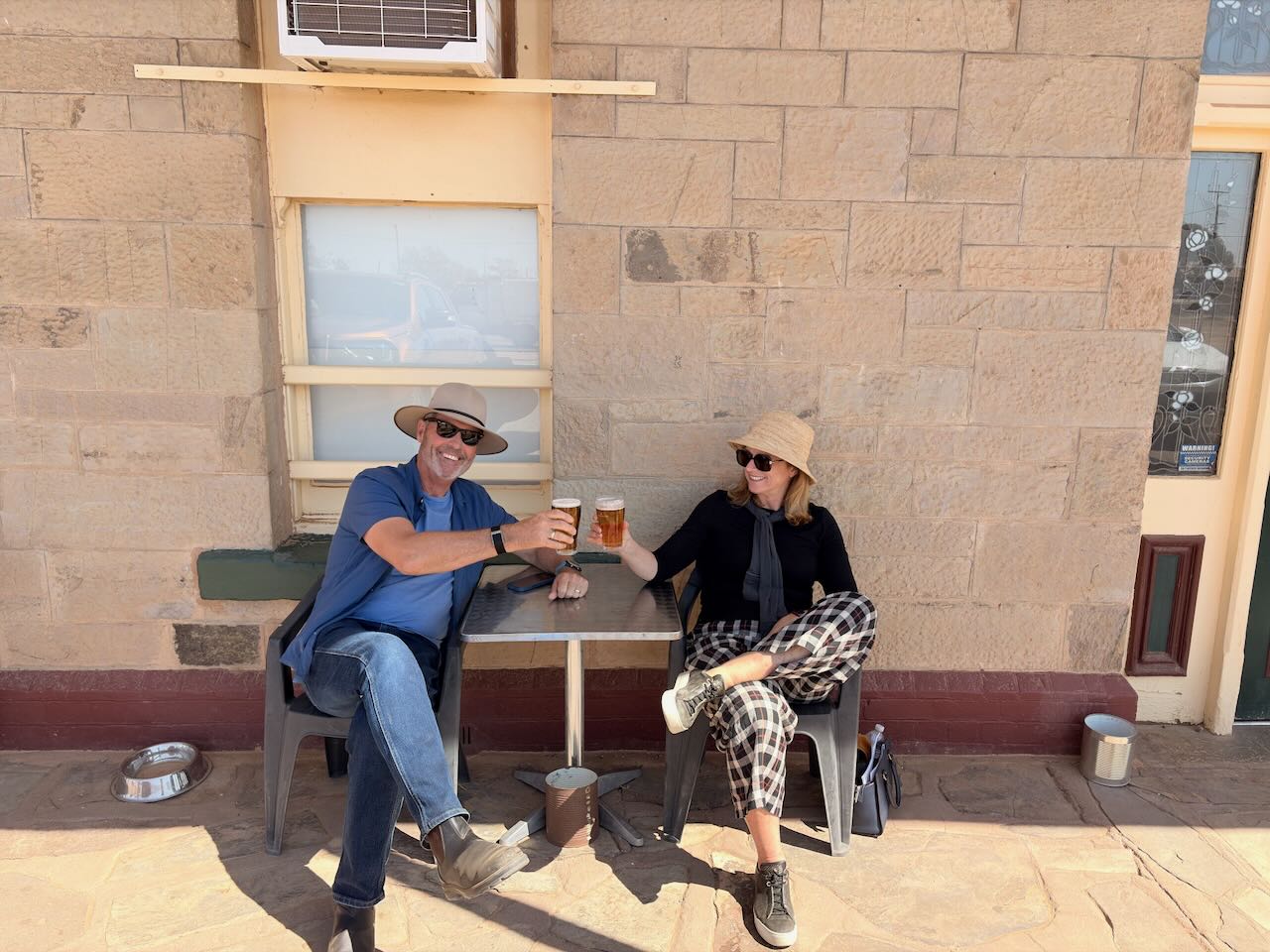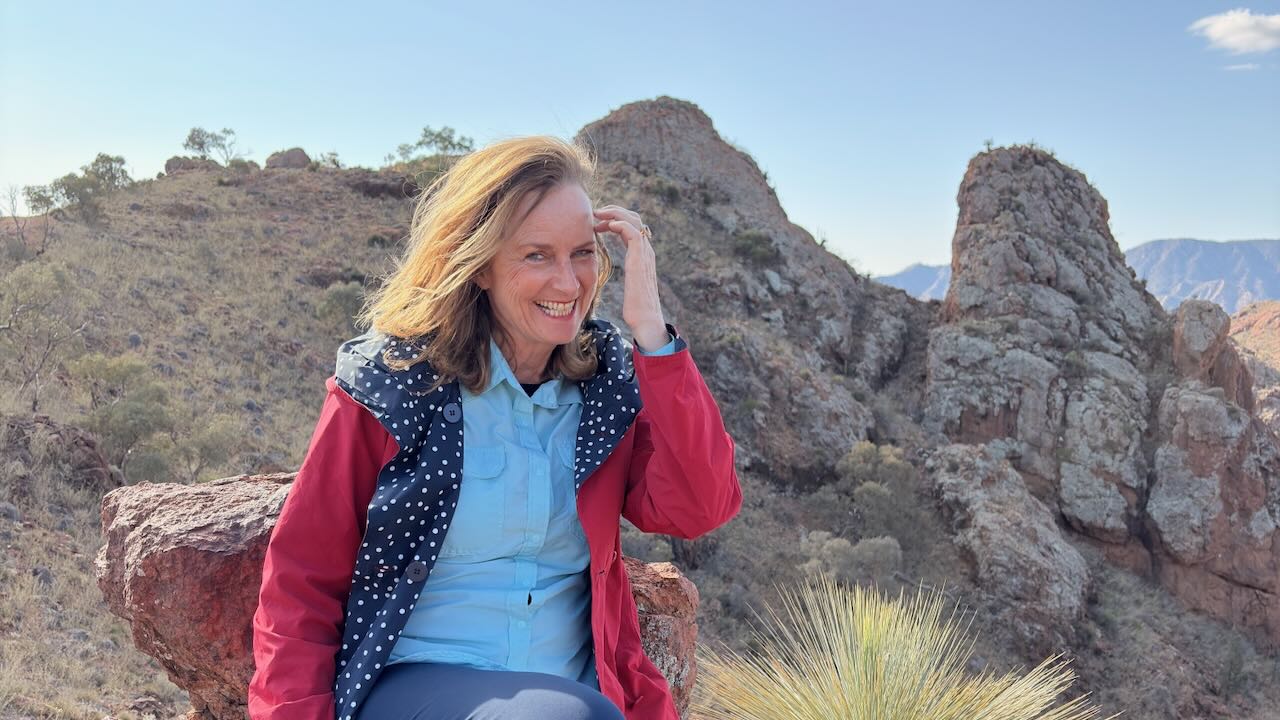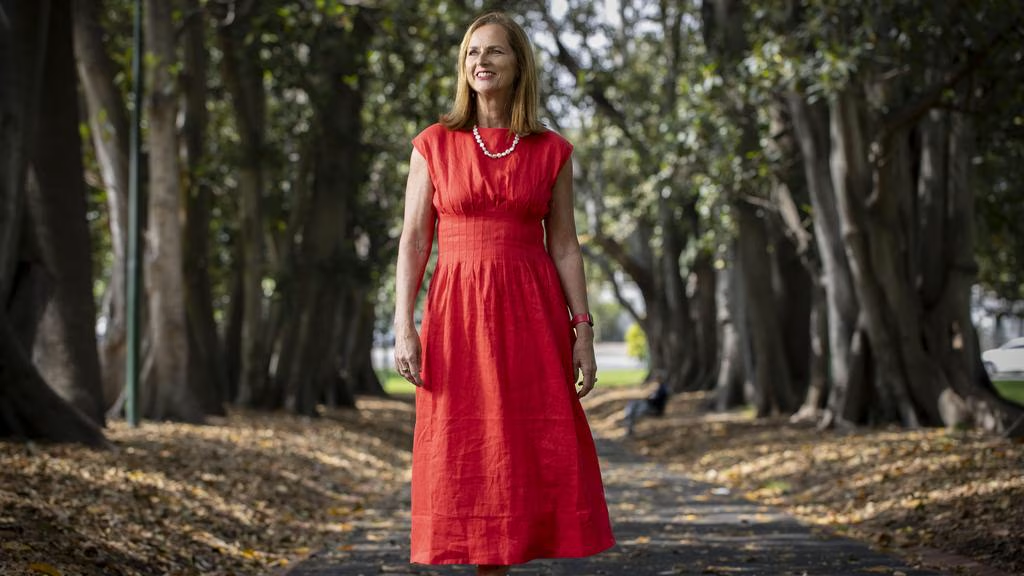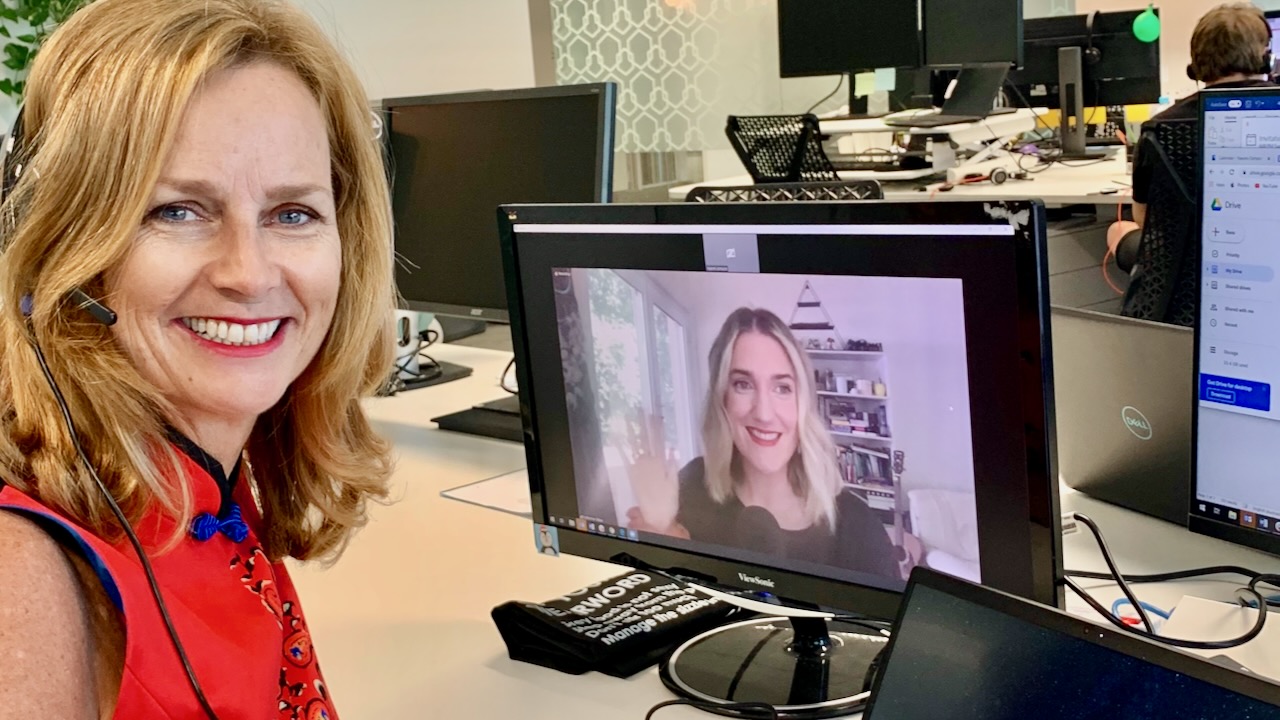More Than Surviving: The Wellbeing Lessons I Learned in the Outback
I’ve faced some tough boardrooms in my time. I’ve navigated high-stakes negotiations, stared down financial uncertainty, and poured my soul into building businesses from the ground up. But nothing, absolutely nothing, prepared me for the raw, stripped-back challenge of being on Australian Survivor.
People ask me what it was like. I can tell you about the gnawing hunger that becomes a constant companion. I can describe the bone-deep cold that seeps into you at night, a damp chill that no fire can fully vanquish. I can talk about the sheer emotional whiplash of playing a game where your closest ally can be your biggest threat.
But the most enduring lesson from that experience wasn't about strategy or alliances. It was about what happens when you strip away everything—the comfortable home, the regular meals, the phone, the ego—and you are left with just yourself. It was the ultimate, unfiltered lesson in human resilience.
And as I sat there, shivering and hungry, it struck me with the force of a physical blow: this is what it feels like to run a small business.

Maybe you don't have the freezing rain, but you have the icy fear of a looming BAS payment. Maybe you don't have the physical hunger, but you have the gnawing anxiety of whether you can make payroll. You have the isolation, the feeling that you are utterly alone in your struggle, even when surrounded by people. You are constantly fighting for survival.
We use that word a lot, don't we? "Surviving." But I'm here to tell you that the goal isn't just to be the sole survivor at the end of your career, battered, bruised, and broken. The goal is to learn how to thrive amidst the challenges. And to do that, you must focus on the most critical asset in your business—an asset that doesn't appear on any balance sheet. You.
This is the most important conversation we need to have. The conversation about small business wellbeing. It’s not a soft topic. It is the hardest, most strategic, and most vital part of building a business that can last.
Lesson 1: The First Rule of the Island - Protect Your Core Asset
On Survivor, the game is over the moment your body gives out. An injury, a severe illness, a collapse from exhaustion—that’s it, you’re pulled from the game. Your mind can be as sharp as a tack, but if your body fails, your game is finished.
Your business is no different. You are the #1 asset. Your energy, your creativity, your resilience, your ability to make sound decisions—it all comes from one place: your physical and mental health. For years, I ignored this. I treated sleep as a suggestion, food as fuel to be jammed in at my desk, and rest as a sign of weakness. I thought my passion would be enough to sustain me.
I was wrong. It’s a recipe for burnout. True peak performance, in the outback or in the office, comes from a deliberate, strategic focus on your own wellbeing.
Practical Steps for Your Physical Wellbeing:
- Become the CEO of Your Sleep: We need to rebrand sleep. It is not a luxury; it is a high-performance tool. When you are sleep-deprived, your leadership ability plummets. You become more reactive, your decision-making is clouded, and your creativity evaporates. Aiming for 7-8 hours isn't lazy; it's the smartest strategic decision you can make for the following day. Start with a non-negotiable "tools down" time at night. No screens, no emails. Let your brain recover. It's earned it.
- Fuel Your Body Like You Mean It: On the island, we would have done anything for a proper meal. It was a visceral lesson in how much our energy is tied to our fuel. Yet in our daily business lives, we often treat our bodies like rubbish bins, grabbing whatever is fast and easy. Your brain cannot run on stale servo pies and lukewarm coffee. Plan your lunches. Keep healthy snacks on hand. Drink water. It sounds ridiculously simple, but it is profoundly important. You wouldn't put cheap oil in a Ferrari; don't put cheap fuel in your body and expect high performance.
- Embrace 'Active Recovery': The word "exercise" can feel like another chore on an endless list. So, let’s call it something else. Call it a "thinking walk" or a "head-clearing session." When you're stuck on a business problem, the absolute worst thing you can do is stay hunched over your keyboard. The solution is not in the screen; it’s outside. A 15-minute walk around the block can do more for your problem-solving abilities than an hour of frustrated clicking. It's not about fitness; it's about function.
Lesson 2: The Loneliness is Real - Build Your Alliance
One of the things that surprised me most about Survivor was the profound loneliness. You're surrounded by people 24/7, but you often feel completely isolated. You have to constantly self-edit, guard your thoughts, and watch your back.
Sound familiar? That is the emotional reality for so many small business owners. You are the leader. You have to be strong for your team. You don't want to burden your family with your financial anxieties. Your mates in "normal" jobs listen politely, but they don't truly get the weight you carry.
This isolation is a silent killer of small business wellbeing. On the island, I learned that you cannot win alone. You need an alliance. You need people you can be vulnerable with, people you can trust. The same is true in business.

Practical Steps for Your Mental Wellbeing:
- Find Your Tribe (This is Not a Request): You must find other people who are in the trenches with you. Join a local business network. Form a small group of 2-3 other founders that meets once a month for a coffee and an honest chat. The purpose of this meeting is not to network; it’s to have a safe space to say, "I'm doing it tough." Hearing another successful business owner admit they feel the same way is like a cool drink of water in the desert. It normalises the struggle and dissolves the shame.
- Vulnerability is a Superpower: On the island, trying to be an emotionless robot made you a target. It was the small moments of shared humanity—admitting you were cold, or missed your kids—that built real bonds. It’s the same in your business life. Being honest with your partner about your fears, or being open with your mentor about what you don’t know, isn't weakness. It’s the very thing that builds the strong, supportive relationships you need to endure.
- Schedule a "Pattern Interrupt": Your mind gets stuck in loops of worry and stress. You need to deliberately break the pattern. This could be a weekly ritual—a Friday afternoon movie, a Saturday morning surf, a Sunday phone call with a friend where you are not allowed to talk about work. It's a circuit-breaker that forces your brain out of its business rut and reminds you that you are a whole person, not just a business owner.
Lesson 3: Weathering the Storm - Mastering Your Internal Climate
On Survivor, you have zero control over the weather. When a torrential downpour hits, you can't reason with it. You can't "hustle" your way out of it. All you can do is focus on what you can control: your shelter, your fire, and your mindset.
Your business operates in an economic climate you cannot control. Recessions, pandemics, changes in customer behaviour, a new competitor opening next door—these are the storms. Wasting energy raging against them is pointless. True resilience comes from focusing your energy inward.
Practical Steps for Your Emotional Wellbeing:
- Strengthen Your 'Shelter': Your 'shelter' is your business's systems, your team culture, and your relationship with your numbers. Are your processes solid? Is your team culture positive and supportive? Do you have clarity on your cash flow? When the external world is chaotic, having a calm, orderly internal world provides immense security and reduces anxiety.
- Master the Strategic Pause: When a crisis hits, our first instinct is to react. To panic. To do something. The island taught me the power of the pause. Sometimes, the smartest move is to do nothing. To sit in the rain for a moment, take a breath, and let the initial wave of panic pass before you make a decision. This pause between stimulus and response is where your best leadership lives.
- Practise Deliberate Gratitude: This can sound a bit "woo-woo," but it is a powerful survival tool. When you're cold, wet, and hungry, focusing on the one thing that is going right—a dry pair of socks, a small fish someone caught—can change your entire mindset. The same is true in business. On a tough day, take sixty seconds to write down one thing you are grateful for. A loyal customer. A supportive team member. The fact you get to be your own boss. It’s a small act that shifts your brain from a state of scarcity to one of sufficiency.

The Real Prize
When I came back from Survivor, people asked me if I'd do it again. The answer was a firm no. But am I glad I did it? Absolutely. Because it taught me that the goal of the game isn't just to outlast everyone else. The goal is to finish the game with your spirit intact.
The same is true for your small business journey. Your mission is not to crawl across the finish line of your career, broken and burnt out, to be crowned the "Sole Survivor."
The real prize is to build a thriving, successful business and a thriving, successful life at the same time. The real win is to reach the end of your journey with your health, your relationships, and your joy not just intact, but enriched by the experience.
So I ask you this: What is one thing you can do this week to move from just surviving to truly thriving? What is one small investment you can make in your own small business wellbeing?
Because you are the heart, the soul, and the engine of it all. And you are worth protecting.

Frequently Asked Questions (FAQs) on I Am a Survivor: The Experience
What is the "survivor mindset" as it relates to business and life?
The "survivor mindset" is the unwavering belief in your own ability to endure and overcome extreme challenges. In business and life, it's about pushing past your perceived limits, embracing discomfort as a catalyst for growth, and understanding that true strength is discovered when you are tested under the most intense pressure.
How does facing extreme challenges build resilience?
Facing extreme challenges, like those on Australian Survivor, builds resilience by systematically stripping away comforts and forcing you to rely on your core inner strength. Each day you endure is a testament to your own toughness, creating a powerful "resilience muscle" and a deep-seated confidence that you can handle whatever adversity comes your way in the future.
What is the biggest lesson from the Survivor experience?
The biggest lesson is that you are always capable of more than you think. The experience reveals that your physical and mental limits are often self-imposed. When pushed, you discover a reserve of determination, adaptability, and fortitude you never knew you possessed, which is a transformative realization for any leader or entrepreneur.
How did the experience on Australian Survivor change your perspective on leadership?
The experience profoundly changes your perspective on leadership by showing that in a high-stakes environment, true influence comes from trust, collaboration, and understanding social dynamics, not from a title. It highlights the importance of empathy and strategic thinking when the traditional structures of authority are removed.
What is the connection between surviving and succeeding?
The connection is that the mindset required to survive is the same one required to truly succeed. Both demand an optimistic outlook, a relentless focus on the goal, the ability to adapt to a constantly changing environment, and the grit to keep going when every instinct tells you to quit. True success isn't about avoiding hardship; it's about surviving it.





